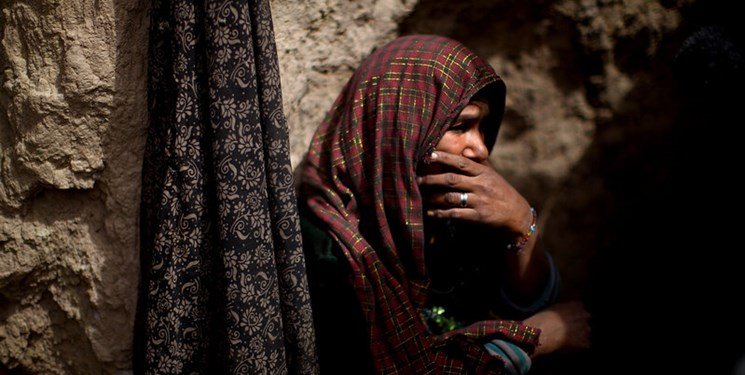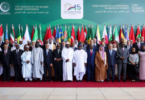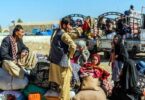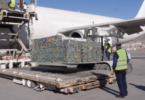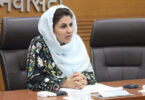KABUL (Khaama Press): According to a report from the United Nations Development Programme (UNDP), Afghanistan is home to approximately 3.5 million drug users, accounting for nearly 10% of the country’s total population.
This staggering figure, revealed after the emergence of the Taliban administration, sheds light on the hidden struggles of thousands of families who have become victims of drug addiction. The report tells the story of a woman who has endured countless acts of violence solely because of her husband’s addiction to drugs, leaving her with nothing but the ruins of the life she once dreamed of.
In traditional societies like Afghanistan, characterized by undesirable cultural norms, low literacy rates, widespread poverty, and unemployment, along with years of conflict and insecurity, women are often viewed as passive and helpless individuals. They are seen as unable to break free from the cycle of recurring violence and often lack the means to improve their situations. However, despite experiencing numerous acts of violence herself, Zahra has not lost her ability to respond to adversity.
Zahra, twenty-five years ago, entered into marriage with the son of her uncle, filled with hundreds of dreams. She aspired to a shared life that she once yearned for and fought to make a reality despite her husband’s descent into drug addiction. She describes how her husband, like many others she knew, went to Iran to earn a living, but there he fell into the trap of drug addiction.
She believes that no one truly understands the depth of her suffering: “Our homes have hidden secrets, and only those women whose husbands have an addiction can comprehend me because of the pain and suffering we endure, every moment of our lives filled with countless miseries, remain unspoken.”
Zahra’s addicted husband has subjected her and their children to physical abuse on multiple occasions, driven by the need for money to sustain his drug habit. She recounts days when her husband attacked her with a knife or a cleaver, driven by the urge to acquire drugs. The broken bones in her hand are a testament to the pain she endured.
In their shared life, Zahra not only lacks the love and support she yearns for, but her children have also experienced the brutality of this situation. She says, “We have always lived alone. My husband never showed paternal love to my children. He would be away from home for months. When he returned after several months, he could not even remember our youngest son.”
This repetitive reality in Zahra’s life has taught her to accept it and focus on her children: “He has dragged me and my children out of the house many times, but we endured it and returned home later.”
Zahra recounts a night when her husband, due to not having drugs and being in a state of withdrawal, took her and her children out of the house in the middle of the night. They spent the night in a small shelter, like a shed, where neighbours store their junk. “In the morning, he left alone without even closing the door. We then returned home.”
She has come to accept that her husband is not seeking treatment, and he, at times when he is not in withdrawal and witnesses her pain and suffering, breaks down in tears, saying, “I cannot save myself.”
The question of who is primarily responsible for the turmoil in Zahra’s life remains unanswered. She sees her husband as a victim of a situation that has ensnared nearly 10% of Afghanistan’s population. She still believes that, alongside her husband, they should “endure and rebuild.”
“I have tried countless times to get my husband treated. When we had some money, we placed him in several private rehabilitation centres, and we even admitted him to government-run rehab facilities in Kabul. However, he never quit an addiction, claiming that once you fall into this trap, there is no way out.”
The result of Zahra’s marriage, now at forty, is four sons. Drug addiction has cast a shadow over her life, blurring the concepts of “love,” “liking,” “dreaming,” and “working together.” She no longer knows which of these she has lost and for which she should remain hopeful.
Zahra, who has worked in various offices for seventeen years and managed to cover her living expenses, has encouraged her children to attend school and study, not allowing their father’s addiction to affect them. Her eldest son, aged nineteen, studies medicine at a university and works part-time at a clinic.
Despite facing numerous challenges in her life and doing her best to secure her children’s futures, Zahra is now deeply worried about the resurgence of the Taliban. Her job at the Ministry of Public Health may be at risk, and she has worked hard and earned credibility over the years. She enjoys a decent income and can secure her sons’ futures, but the situation has changed with the return of the Taliban.
Zahra, a person living with an addiction, a person living with a substance use disorder directly impacted by her husband’s addiction, has experienced suffering and deprivation but has received no help from any institution throughout these years. She sought help from several organizations during extreme hardship and financial struggles. However, she received rejection after rejection because there was no institution dedicated to helping people living with an addiction, the people living with substance use disorder.

